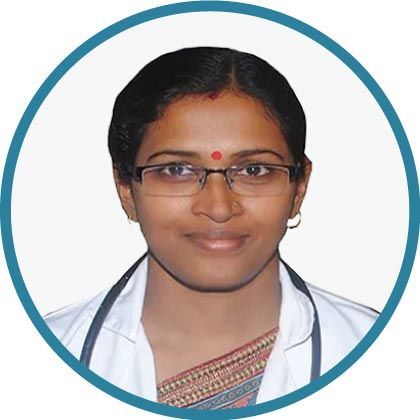Symptoms of Alcoholic Liver Disease
Discover the symptoms of alcoholic liver disease, from early signs like fatigue and nausea to advanced stages involving jaundice, swelling, and liver failure. Know when to seek medical help.


Alcoholic Liver Disease (ALD) is a serious condition caused by excessive alcohol consumption over a long period. It affects the liver, an essential organ responsible for detoxifying the body, aiding digestion, and storing nutrients. Recognising the symptoms early can help in seeking timely medical intervention and preventing further damage.
In this article, we’ll discuss the common symptoms of ALD, how it progresses, and what you can do to protect your liver health.
What is Alcoholic Liver Disease?
Alcoholic Liver Disease occurs when prolonged alcohol abuse damages the liver, leading to inflammation, scarring (cirrhosis), and even liver failure. The liver can repair itself to some extent, but continuous alcohol consumption overwhelms its ability to heal, causing permanent damage.
ALD progresses in three main stages:
1. Fatty Liver (Steatosis): The earliest stage where fat builds up in liver cells.
2. Alcoholic Hepatitis: Inflammation and liver cell damage occur.
3. Cirrhosis: Severe scarring replaces healthy liver tissue, impairing liver function.
Each stage has distinct symptoms, and early detection can make a significant difference in treatment outcomes.
Common Symptoms of Alcoholic Liver Disease
Here are some of the common symptoms of alcoholic liver disease:
Early Symptoms (Fatty Liver Stage)
In the initial stage, symptoms may be mild or even absent. However, some people may experience:
Fatigue: Feeling unusually tired even after rest.
Mild abdominal discomfort: A dull ache or fullness in the upper right side of the abdomen.
Unexplained weight loss: Losing weight without trying.
Since these symptoms are subtle, many people ignore them. However, reducing alcohol intake at this stage can reverse liver damage.
Moderate Symptoms (Alcoholic Hepatitis Stage)
As the disease progresses, symptoms become more noticeable:
Jaundice: Yellowing of the skin and eyes due to a buildup of bilirubin.
Abdominal swelling (Ascites): Fluid accumulation in the abdomen, causing bloating.
Nausea and vomiting: Frequent digestive discomfort.
Loss of appetite: Reduced desire to eat, leading to malnutrition.
Fever and weakness: Feeling unwell with low energy levels.
At this stage, quitting alcohol is crucial to prevent further liver damage.
Get Your Symptoms CHecked By Top Specialists
Severe Symptoms (Cirrhosis Stage)
If ALD advances to cirrhosis, symptoms become severe and life-threatening:
Severe abdominal pain and swelling: Due to fluid retention and liver enlargement.
Easy bruising and bleeding: The liver fails to produce enough clotting factors.
Confusion and memory problems (Hepatic Encephalopathy): Toxins affect brain function.
Dark urine and pale stools: Changes in urine and stool colour due to liver dysfunction.
Spider-like blood vessels on the skin (Spider Angiomas): Small, visible blood vessels near the skin’s surface.
Cirrhosis is irreversible, but stopping alcohol can slow disease progression and improve quality of life.
What Causes Alcoholic Liver Disease?
The primary cause of ALD is excessive alcohol consumption over many years. However, certain factors increase the risk:
Gender: Women are more susceptible to liver damage from alcohol.
Genetics: A family history of liver disease can increase risk.
Obesity and poor diet: Malnutrition worsens liver damage.
Existing liver conditions: Hepatitis or fatty liver disease accelerates ALD.
How Can You Protect Your Liver?
If you or a loved one is at risk of ALD, here are some steps to protect liver health:
1. Reduce or Quit Alcohol
The most effective way to prevent and manage ALD is to stop drinking alcohol. Even reducing intake can help in the early stages.
2. Eat a Liver-Friendly Diet
Increase fruits and vegetables: Rich in antioxidants that support liver function.
Choose lean proteins: Fish, chicken, and plant-based proteins reduce liver strain.
Avoid fatty and processed foods: Excess fat worsens liver damage.
Stay hydrated: Water helps flush out toxins.
3. Exercise Regularly
Physical activity helps maintain a healthy weight and reduces fat buildup in the liver.
4. Get Regular Health Check-ups
If you have a history of heavy drinking, regular liver function tests (LFTs) can detect early damage.
When to See a Doctor?
If you experience any of the symptoms mentioned, consult a doctor immediately. Early diagnosis and treatment can prevent complications.
Conclusion
Alcoholic Liver Disease is a preventable condition. Recognising the symptoms early and making lifestyle changes can save your liver from irreversible damage. If you or someone you know is struggling with alcohol-related liver issues, seek medical help today.
Consult Top Specialists
Get Your Symptoms CHecked By Top Specialists

Dr Vinay Kumar A V
Nephrologist
8 Years • MBBS, MD - General Medicine, DM - Nephrology
Bilaspur
Apollo Hospitals Seepat Road, Bilaspur

Dr. Kavitha Subash
General Physician/ Internal Medicine Specialist
15 Years • MBBS, MD
Chennai
Apollo Speciality Hospitals Vanagaram, Chennai

Dr. Shakti
General Physician/ Internal Medicine Specialist
25 Years • MBBS, DNB, PGDHIVM, MRCP (UK)
Delhi
Apollo Hospitals Indraprastha, Delhi
(225+ Patients)

Dr. V K Aneja
General Physician/ Internal Medicine Specialist
38 Years • MBBS, MD (Med.)
Delhi
Apollo Hospitals Indraprastha, Delhi
(75+ Patients)

Dr. Sandhya Chandel
General Physician/ Internal Medicine Specialist
16 Years • MBBS, MD (Int. Med.), IDCCM
Bilaspur
Apollo Hospitals Seepat Road, Bilaspur
(100+ Patients)
Consult Top Specialists

Dr Vinay Kumar A V
Nephrologist
8 Years • MBBS, MD - General Medicine, DM - Nephrology
Bilaspur
Apollo Hospitals Seepat Road, Bilaspur

Dr. Kavitha Subash
General Physician/ Internal Medicine Specialist
15 Years • MBBS, MD
Chennai
Apollo Speciality Hospitals Vanagaram, Chennai

Dr. Shakti
General Physician/ Internal Medicine Specialist
25 Years • MBBS, DNB, PGDHIVM, MRCP (UK)
Delhi
Apollo Hospitals Indraprastha, Delhi
(225+ Patients)

Dr. V K Aneja
General Physician/ Internal Medicine Specialist
38 Years • MBBS, MD (Med.)
Delhi
Apollo Hospitals Indraprastha, Delhi
(75+ Patients)

Dr. Sandhya Chandel
General Physician/ Internal Medicine Specialist
16 Years • MBBS, MD (Int. Med.), IDCCM
Bilaspur
Apollo Hospitals Seepat Road, Bilaspur
(100+ Patients)